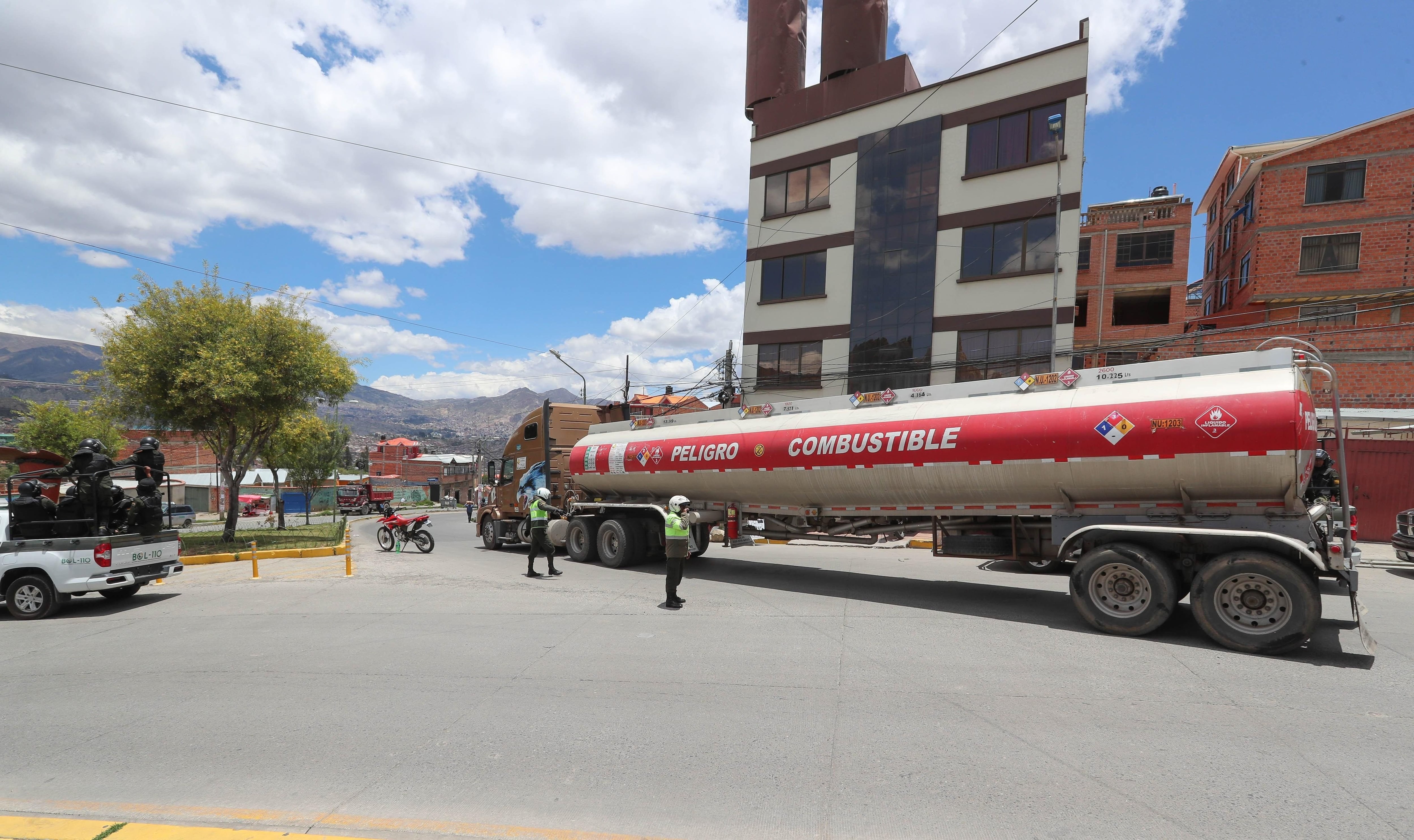
Travels become eternal since diesel is scarce in Bolivia. Gerardo Salluco prepares to spend his second night parked in the long line of buses, waiting for a gas station to open, guarded by two soldiers. The country south of Peru, which last week was shaken by a failed military coup denounced by the government, is grappling with its worst crisis since the so-called economic miracle, when in 2006 the government of socialist President Evo Morales nationalized the gas industry.
It is almost daylight and Salluco is still waiting for the line to finally start moving. “I’m already on my second night, so it’s tiring to wait, because suddenly they start selling out, so I have to be on the lookout.”says the 49-year-old driver, dressed in a grey thermal sweater.
Salluco has been transporting passengers between Bolivia and Chile for twelve years. He arrived in La Paz last weekend to stock up on diesel, but “there is none.” “We are in a bad way, there is no reason or way to deny it,” he laments.
In El Alto, a city adjacent to La Paz and a political stronghold of the ruling left, Claudio Laura also stopped his tanker truck in a long line of vehicles that leads to another fuel station that is out of stock.
“I got in line at four in the afternoon and I stayed here tonight.”says this 33-year-old man. Laura brings fuel from Peru or Chile, but now she has no way to get around.
The lithium triangle
Bolivia, which together with Chile and Argentina forms the lithium triangle, a key resource in the transition to clean energy, has been facing a shortage of dollars and diesel and gasoline since last year. Gas, the engine that has driven the economy since its nationalization, has lost strength due to the lack of investment in exploration.
By 2022, exports fell by just over 50% compared to 2013, when they reached their peak. The country used its dollar reserves to maintain subsidies on fuel it imports at international prices.
In mid-June, the government of Luis Arce ordered the deployment of military personnel to gas stations to prevent smuggling within the country or to Peru and Argentina.
According to the state oil company YPBF, a good part of the problem comes from rumors of shortages circulating on social networks, which generate a “over demand” made out of fuel. “The product is guaranteed“, said the president of the Bolivian company, Armin Dorgathen.
However, the freight transport union had called for a protest last week with roadblocks against fuel shortages.
The Arce government reached an agreement to defuse the protest before the military rebellion broke out, the veracity of which is questioned by opponents and even Morales, a former ally of the president. “We realize something like this, more or less, (that) they want to distract,” says Gerardo Salluco, inside the passenger bus, referring to the failed coup.
But the truth -he adds- is that “There are no dollars, there is no diesel, we have to stand in line”.
Black dollar
Faced with the drop in gas revenues, Bolivia also had to inject foreign currency into the financial system. While a decade ago the State had 15.122 billion dollars in its coffers, last month this figure fell to 1.796 billion.
Much of the dollar deficit is due to the subsidies that the State gives to companies that import diesel and gasoline.
The Central Bank of Bolivia (BCB) has set the price of the dollar at 6.96 bolivianos. On the black market, the currency is trading at more than 30% of the official rate, while private banks only allow the withdrawal of 100 dollars a day.
Minerva Ruelas, 27, who works in radiology equipment maintenance, has been waiting in line since early morning at a shipping company to pay one of her suppliers abroad with the dollars she managed to save.
“If you’re lucky, you can find a few dollars, but the exchange rate is very high. Normally we exchange it for 6.97 (… ) but on the black market you can find it for up to 10 bolivianos,” he complains. “But right now I’m the only one who wants to send money so I can pay for what I need,” he says, resigned.
Source: Gestion
Ricardo is a renowned author and journalist, known for his exceptional writing on top-news stories. He currently works as a writer at the 247 News Agency, where he is known for his ability to deliver breaking news and insightful analysis on the most pressing issues of the day.











